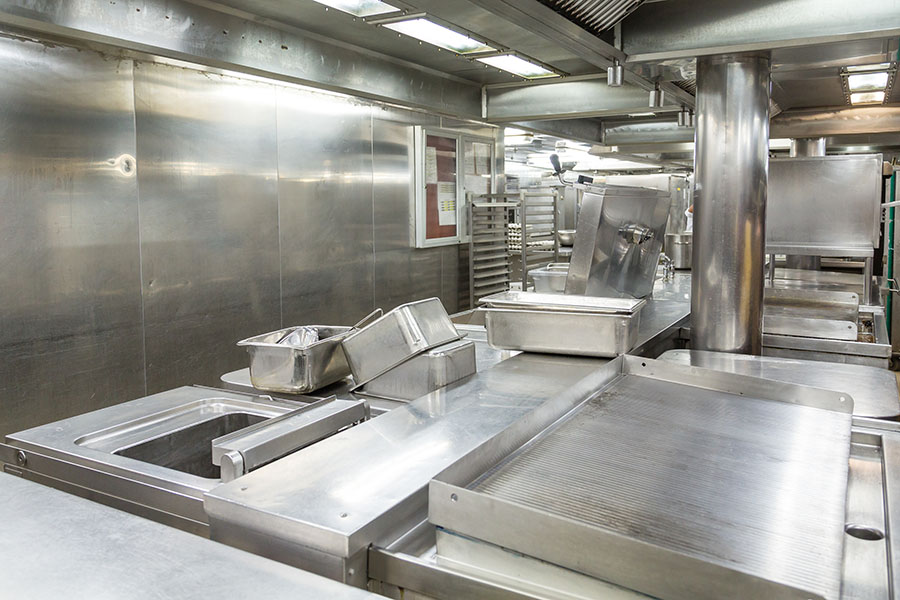 Budget for construction plans and mishaps with pro
Budget for construction plans and mishaps with pro
Hope for the best, but prepare for the worst. This English proverb is never truer than when undertaking a construction project. Whether an operator is expanding an existing location, building one from the ground up or the inside out, any project, big or small, will hit roadblocks that cost money, time and sanity.
What’s the best plan of attack to handle the inevitable roadblocks determined to mess with your end-date? “I smile as I say this, but find a pro!” says Matt Vetter, president of River’s Edge Project Management in Brighton, Michigan. “Unless you are working with a trusted contractor with whom you have done business with before, and were very happy with them, don’t take chances on this part. You have to have someone on your side through the entire development process; someone who is not going to be looking to take short cuts in order to boost their own profit, but will be watching to make sure no one else is. We talk with owners every day who have been burned by inaccurate budgeting and unrealistic schedules –– the fees you will pay to hire on a consultant or owner’s representative will more often than not be paled in comparison to the savings in time, stress, and of course your money.”
John Blatchford, operations manager of ProMaster Home Repair & Handyman in Milford, Ohio, advises operators to do their homework. “A restaurateur should worry if a contractor blithely says that they can do everything in a certain timeframe for a low budget. If the restaurateur goes with the standard ‘three-bid’ system and picks the lowest price, this can be problematic for a variety of reasons,” he says. “The best thing a restaurateur (or anyone, really) can do is immense research upfront to ensure the quality of the people they are hiring which will save them in the long run.”
When looking for a professional, Blatchford recommends operators review:
- The Better Business Bureau
- local state business filings
- online review sites such as Angie’s List and Google Reviews,
- verifying the company has worker’s compensation
- checking with the attorney general’s office for complaints.
“An owner needs to identify a general contractor, general manager or project manager first — do a qualifications-based selection instead of a cost-based selection,” says Brandon Philpot, president of A2i Creative Building Solutions in Cincinnati, Ohio. “It’s a complex process even for a small space and owners need expertise up front to help them through the process. In the end, the expertise will help manage the end-date.”
Philpot says operators should interview a potential hire to establish trust.
“In situations where it is an individual restaurant, talk with the members of the community who have been in the same situation and ask, ‘Who did you use?’ and ‘How was your experience?’ Philpot says. “As for recommendations from your design professional — ‘Who do you trust?’ This can help generate a short list of contractors you can interview.”
Even when an operator finds trustworthy professionals, make sure not to jump into the construction phase. Carlos Ardavin, Jr., CEO of Matrix Construction Group, Inc., in Miami, Florida, recommends getting the team of professionals working together before construction begins.
“For a first time client, the expectation is to hire an architect to design it, and then hire a contractor with the best price and then, everything stops. And the owner asks why?” Ardavin says. To eliminate this, Ardavin suggests involving the contractor while the architect is designing the concept, adding that the ideal relationship is architect-contractor-owner. By involving the contractor and engineers during the design process, he says the owner can save money.
“Put the architect and the contractor in a meeting and see how they work and set up a weekly team review meeting,” Ardavin says.
Once an operator has his team in place, he should set up upfront contracts.“And the best form that this can take is for the restaurateur to define what would be unacceptable to leave out should time or budget become an issue. The necessary items including safety and structure of course are primary tasks, but the owner really should prioritize the tasks or items that will be completed towards the end of the project such as murals or lighting or trim type stuff,”
Blatchford says. “If there are any of these that are essential to the feel or flow of the business then the restaurateur should make this very apparent at the outset so that no problems arise down the road and that if necessary, some smaller objects can be left out or completed later again depending on time and budget.”
Operators need to include their two cents in the budget.
“Review the budget and question anything that may be abnormal, underestimated or have potential for a cost overrun. An accurate budget will include expenses to be incurred before work starts, such as permits and fees, and post-job costs such as clean-up and close-out costs. Asking a contractor about previous budgets and if they were met is a great way to ensure a more accurate estimate,” says Andrew Schrage, co-owner of Money Crashers Personal Finance.
“Lastly, to ensure an accurate, realistic estimated timeline, insist that the contractor implements a critical path method (CPM) schedule. This will result in clearer lines of communication, and it provides a benchmark to track progress in real time.”
Also, don’t forget to budget for time.Operators need to recognize all of the potential time-sucking roadblocks, such as negotiating leases, complying with zoning regulations, obtaining building permits, passing health and city department inspections, coordinating utilities and dealing with problems of existing HVAC systems or equipment, as well as completing construction.
“Plan for the lease process; that can be six to nine months once you find the space to close a lease,” Philpot says. “Permitting time has doubled. Ninety days even before you can start construction and construction can then be another 30 to 60 days. As the other things get pushed back, construction time gets squeezed and then, any problems that come up during the construction phase get amplified.”
DeAnn Owens is a freelance journalist living in Ohio. She specializes in features and human interest stories.
 Budget for construction plans and mishaps with pro
Budget for construction plans and mishaps with pro





